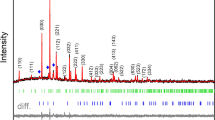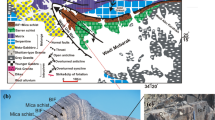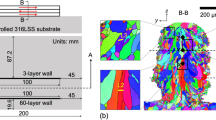Abstract
THE accompanying photomicrograph (Fig. 1) shows the phosphide eutectic in a grey cast iron at 5000 diameters. This shows that the constituent which appears as dark markings at × 1000, and is still commonly described as iron carbide, is actually duplex, and in fact very similar to pearlite, consisting of alternate laminæ of iron carbide and iron. It is recognised from the research of Stead that there would be present the three constituents of the triple eutectic, namely, iron phosphide, iron carbide, and austenite, or their transition products. Thus the presence of laminated pearlite, from the transformation of austenite, is accounted for. The pearlite thus associated structurally within the phosphide masses may conceivably be richer (it probably is, but may even be poorer) in carbon content than obtains in the normal pearlite ratio, Fe3C21Fe. Prof. Desch, to whom I have shown several similar photographs, confirms the foregoing explanation. The photograph was taken at 5000 diameters by means of the super microscope.
This is a preview of subscription content, access via your institution
Access options
Subscribe to this journal
Receive 51 print issues and online access
$199.00 per year
only $3.90 per issue
Buy this article
- Purchase on Springer Link
- Instant access to full article PDF
Prices may be subject to local taxes which are calculated during checkout
Similar content being viewed by others
Author information
Authors and Affiliations
Rights and permissions
About this article
Cite this article
ROGERS, F. The Phosphide Eutectic in Cast Iron. Nature 114, 275–276 (1924). https://doi.org/10.1038/114275b0
Issue Date:
DOI: https://doi.org/10.1038/114275b0
Comments
By submitting a comment you agree to abide by our Terms and Community Guidelines. If you find something abusive or that does not comply with our terms or guidelines please flag it as inappropriate.



